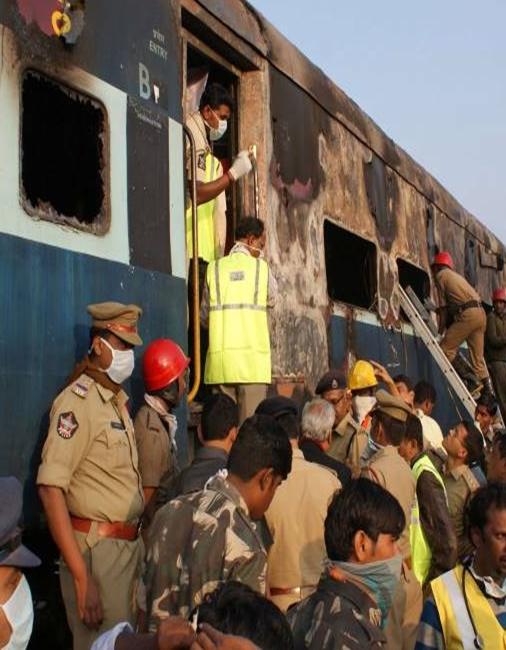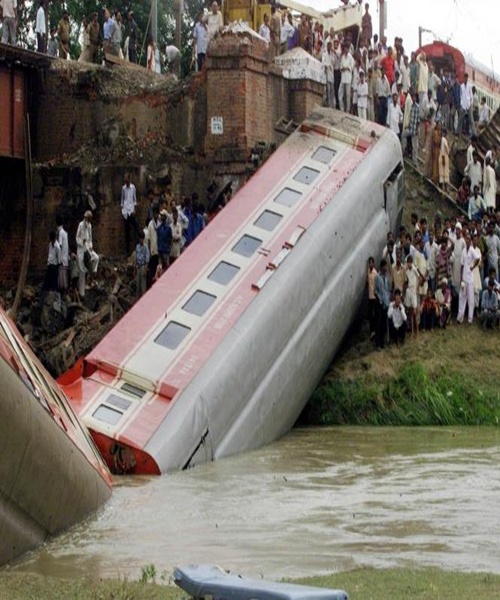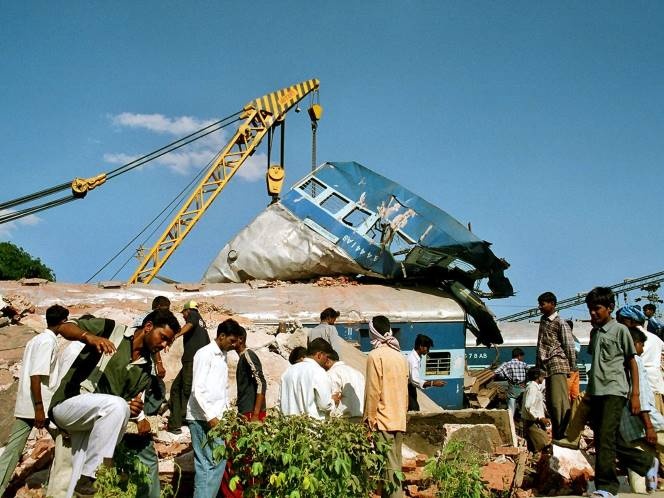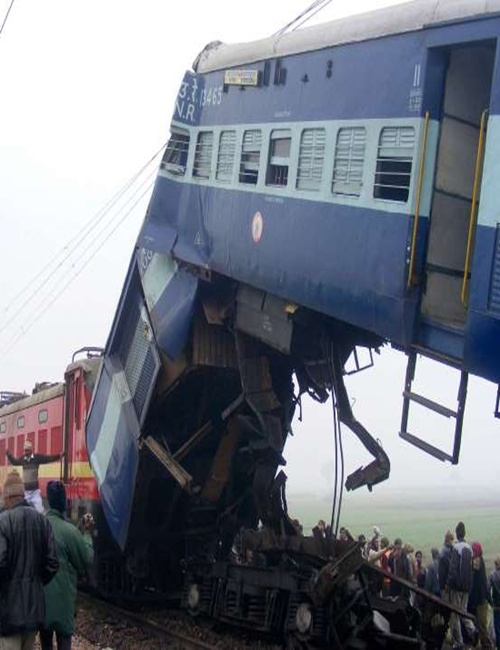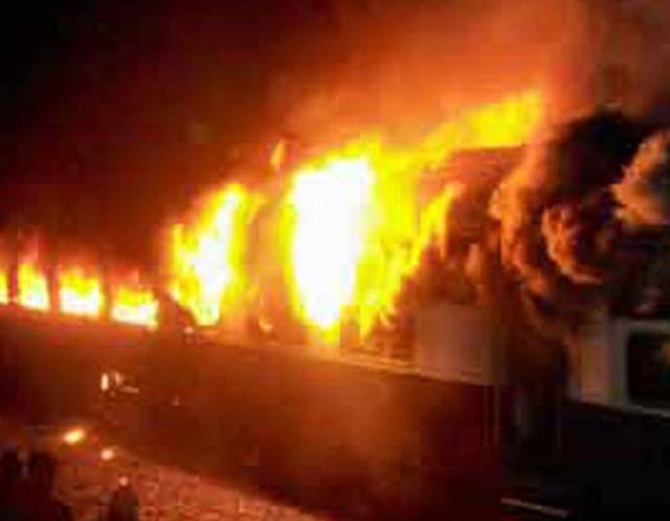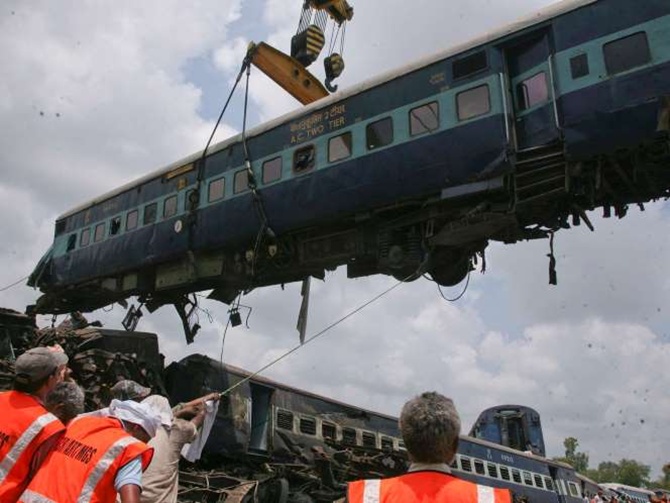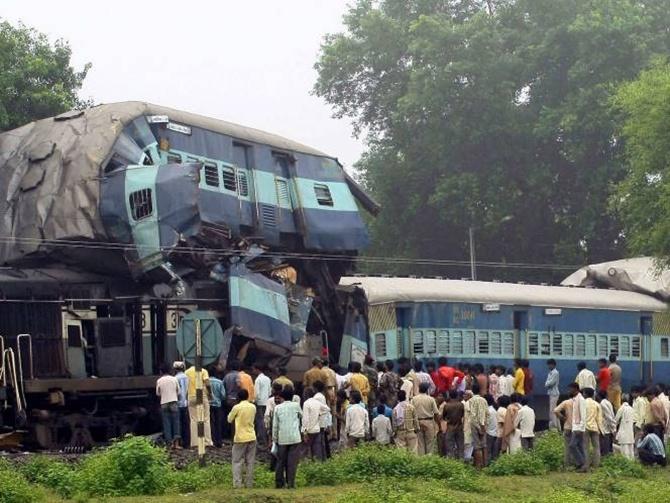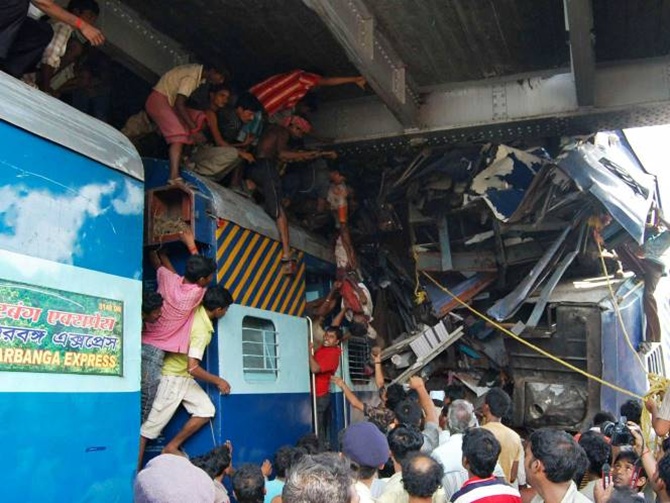 | « Back to article | Print this article |
Pathetic state of Railways: Blame the political leadership
The work and management culture in the Railways needs to be severely shaken up, but the conventional political leadership of the country is unable to do it, says Subir Roy.
In two weeks at the turn of the year, more than 30 people died in two accidents in which passenger trains caught fire.
In a little over two years since late 2011, almost 100 people have died in five major train fires. Strangely, there were no deaths from train fires in 2009 and 2010. The next three years were bad, and this year has begun horribly with an accident claiming nine lives.
If there is anything worse than these tragedies, it is the response - particularly to the two accidents in the last three weeks.
Click NEXT to read more...
Pathetic state of Railways: Blame the political leadership
The Railways' leadership has spoken like automatons who have lost the power to be unnerved; the prime minister and his council of ministers have not acted as if they have a crisis on hand; and the media has paid attention but you need only compare it with the saturation coverage given to the fracas over an Indian diplomat in the United States to know how skewed its priorities are.
The current railway minister, Mallikarjun Kharge, got the job after losing out in the race for the chief ministership of Karnataka to K Siddaramaiah. In his short stint at the top, he has failed to sound even remotely articulate about issues important to the Railways.
Click NEXT to read more...
Pathetic state of Railways: Blame the political leadership
It is amazing how some of the best decisions on the basis of good expert advice from the Kakodkar Committee on railway safety were almost taken before politics killed them.
In his budget speech less than two years ago (March 2012), the railway minister at the time, Dinesh Trivedi, announced the setting up of a railway safety authority as an independent statutory regulatory body that would be responsible for all aspects of safety regulation and enforcement.
Click NEXT to read more...
Pathetic state of Railways: Blame the political leadership
He had also declared that the Railway Board would have a member for safety and research and, as a corollary, announced an apex railway research and development council to spearhead research and take forward safety.
Mr Trivedi lost his job shortly thereafter and none of those ideas have seen the light of day. The current Railway Board chairman has gone on record saying that an independent safety regulator is not a "practical idea"!
The Kakodkar Committee made specific recommendations on preventing fire-related accidents in passenger coaches.
Click NEXT to read more...
Pathetic state of Railways: Blame the political leadership
The committee felt that relying on railway staff trained to use fire extinguishers kept only in air-conditioned coaches and guard vans to fight fires in passenger coaches was a "rudimentary arrangement (that) has generally proved to be insufficient" and it is "only the fire brigades under the local authorities which played the major role in fire extinguishing".
Yet, the Railways announced after the recent fires that there would be fire extinguishers in all coaches!
The report set aside two other ways of firefighting. Fire alarms based on smoke detection had not worked under running conditions in experiments, and microprocessor-based fire alarms were yet to be found effective.
Click NEXT to read more...
Pathetic state of Railways: Blame the political leadership
It went on to argue that stopping a train in case of fire was vital and many times passengers had been unable to get the loco pilot and the guard to stop the train by pulling the alarm chain.
In view of all this, it recommended that the "railways should go in for flame detection systems in coaches which should sound hooters in many places in coaches to warn the passengers. Its interface with alarm chain pulling system may be considered based on field trials".
Click NEXT to read more...
Pathetic state of Railways: Blame the political leadership
The one point on which the committee commended the Railways was the organisation's decision to introduce fire-retardant materials in passenger coaches. But even here, post-accident news reports question whether such materials that the Railways has bought meet specifications and whether corruption in procurement has not compromised quality.
An accident is followed by a formal investigation, whose report takes some time to come. Big change comes only through political leaders waking up to public pressure, and public interest in an accident wanes by the time the investigation report comes.
Before we know definitively what actually happened, two preliminary versions have already emerged.
Click NEXT to read more...
Pathetic state of Railways: Blame the political leadership
A report filed by the Government Railway Police (it reports to the government), according to The Hindu, has said that the fire in the Bandra train started in a junction box between two compartments and spread wildly through loose and unconcealed wires.
On the other hand, the Railway Protection Force (it reports to the Railways) is pursuing the theory that the fire was caused by a passenger smoking a cigarette between two compartments!
The work and management culture in the Railways - which, if run properly, can contribute to higher economic growth - needs to be severely shaken up, but the conventional political leadership of the country is unable to do it.
So it may be advisable to consult an astrologer before going on a long-distance train journey.
